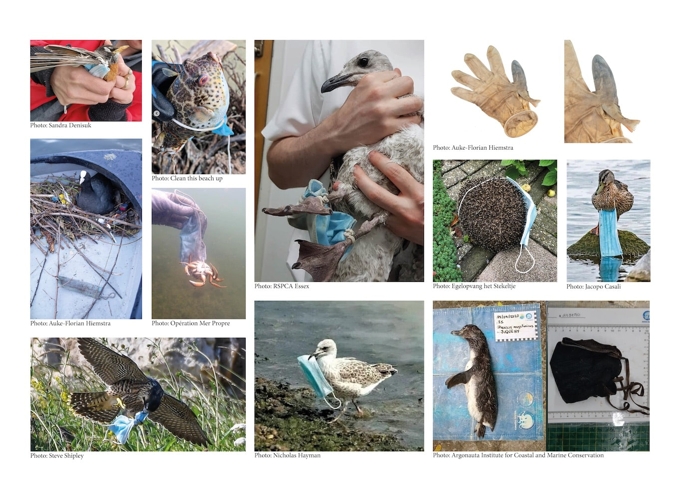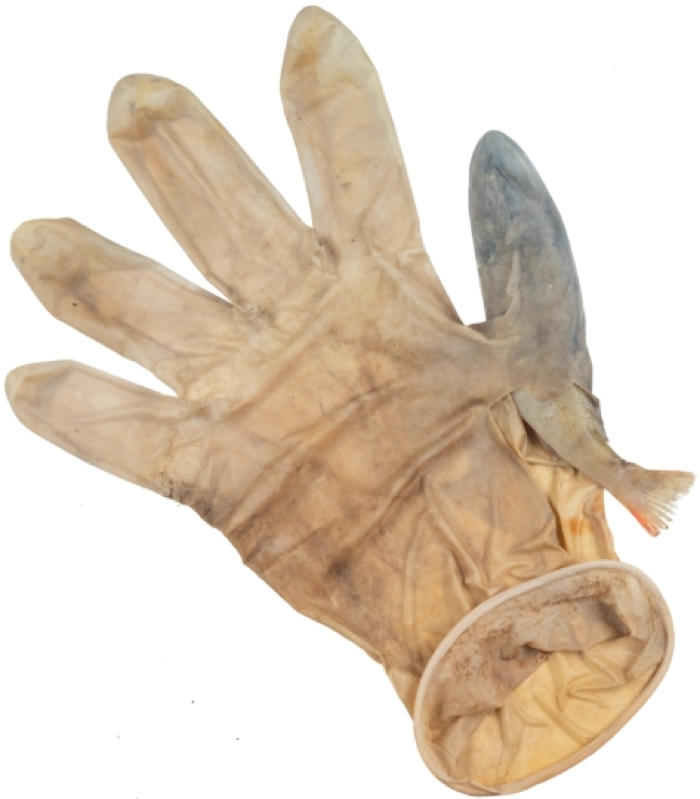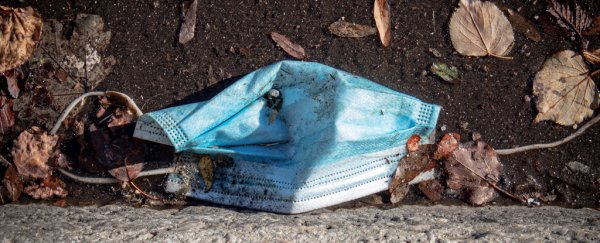Early into the pandemic it became clear that something was wrong: the first signs of a tangential and potentially deadly threat emerging in the wake of COVID-19.
It was an old problem, in truth, but one given fresh potency as humans scrambled to protect themselves from the coronavirus. As production of single-use face masks and other disposable Personal Protective Equipment (PPE) like medical gloves exploded, so too did their presence in the environment.
That presence is one that ensnares and ultimately extinguishes wildlife, scientists report in a new study documenting the deadly effects of 'COVID-19 litter' on animals in their natural habitat.
"PPE litter, also referred to as COVID-19 litter, mainly consists of single-use (usually latex) gloves and single-use face masks, consisting of rubber strings and mostly polypropylene fabric," a team of researchers from the Netherlands explains in a new paper.
"Both masks and gloves pose a risk of entanglement, entrapment and ingestion, which are some of the main environmental impacts of plastic pollution."
 Animal-PPE interactions. (covidlitter.com)
Animal-PPE interactions. (covidlitter.com)
It is not a small problem. By one estimate, an astounding 3 million face masks are used every minute during the COVID–19 pandemic, most of which are of the disposable variety, neither designed nor recommended for repeat use.
For months, scientists have warned of the ramifications of this mountain of PPE trash finding its way into the environment, describing it as a disaster that might last generations.
It's not just litter on land, either, but in the oceans too, and in mind-boggling volume: over 1.5 billion face masks may have washed into the ocean last year alone, some think.
Now, we're getting a clearer picture of what this plastic pollution does when it comes into contact with animals, and it's not pretty.
In the study, sparked by the discovery of a perch trapped in the finger of a latex glove, a team led by biologists Auke-Florian Hiemstra from Naturalis Biodiversity Center and Liselotte Rambonnet from Leiden University scoured the internet and social media, collecting reported observations of interactions between animals and PPE litter from the beginning of the pandemic.
They discovered birds using COVID-19 trash for their nests, a dead American robin (Turdus migratorius) entangled in a face mask, a gull with a mask wrapped around its leg for weeks, and other birds unable to remove masks from their talons or beaks.
 A perch trapped in a glove. (Auke-Florian Hiemstra)
A perch trapped in a glove. (Auke-Florian Hiemstra)
Bats, hedgehogs, pufferfish, and crabs – all kinds of animals were found tangled up with masks and gloves, some of them living and hobbled, others perished, likely due to the PPE they themselves couldn't discard.
Sometimes, animals unwittingly eat the plastic, like the dead Magellanic penguin (Spheniscus magellanicus), found on a beach in Brazil, with an ingested face mask later discovered in its belly.
Domestic animals like dogs and cats have made the same mistake, and sometimes even people do too, the researchers found: "A six-year-old child ingested parts of a presumed blue face mask, accidentally baked into a McDonalds chicken nugget," the team writes.
To keep collecting data and raise awareness of the issue, the researchers set up a website (covidlitter.com) where people can share their own observations of this grim phenomenon – in the hope that by better understanding the extent of this pervasive pollution, we can help find effective ways to counter it.
"The pandemic is not over yet, and the amount of PPE used may only increase, and will continue to threaten wildlife way beyond the time access to a vaccine becomes available," the authors explain.
"In addition to this, the already littered items will degrade into micro- and nanoplastics and stay in the environment for hundreds of years."
Of course, the real issue here goes beyond disposable PPE in the COVID era, as this is just another example of the even bigger problem of plastic pollution generally, stemming from how people use and discard single-use items (although even that doesn't capture the true complexity of the plastic predicament).
Nonetheless, to the extent that we can control this in terms of the PPE context here and now, the researchers urge people to cut up disposable gloves and snip the straps on face masks before throwing them away, as doing so could help prevent wildlife later becoming ensnared.
Much better still – avoid single-use PPE wherever safe and possible to do so, and choose reusable alternatives whenever you can (which haven't actually been seen hurting any animals at all, the researchers point out).
"People may suffer from the coronavirus pandemic," the team says, "but nature is getting sick of our plastic."
The findings are reported in Animal Biology.
